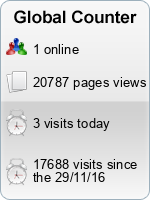Audiological evaluation in geriatric age group
Abstract
AIM: To evaluate the hearing thresholds in individuals aged above 65 years attending the Government General Hospital and among the people attending the hearing screening done in the city of Thiruvananthapuram. The study also includes the review of the literature on ARHL. MATERIALS AND METHODS: 185 individuals aged above 65 years are evaluated for hearing thresholds with the help of pure tone audiometry and speech audiometry. Among the 185 individuals 102 are patients attending the Department of ENT for the complaints of loss of hearing. The remaining 83 individuals are from the survey conducted to screen for hearing loss in the city of Thiruvananthapuram for the population aged above 65 years. Demographic data about the 185 individuals is collected. Pure tone audiogram and speech audiometry is done in all the patients. CONCLUSIONS:  PTA and SRT values are similar in both the groups. Early old age groups presented with mild to severe types of deafness and loss in lower frequencies. Late old aged people showed profound hearing loss and increased thresholds in higher frequencies. SRT estimation seemed more sensitive than calculating PTA in the persons above 85 years. Females showed 5 to 10 dB lower PTA values than males in all ages.
Downloads
Copyright (c) 2015 Acta Medica Scientia

This work is licensed under a Creative Commons Attribution 4.0 International License.
Authors who publish with this journal agree to the following terms:
A) Authors retain copyright and grant the journal right of first publication with the work simultaneously licensed under a Creative Commons Attribution License that allows others to share the work with an acknowledgement of the work's authorship and initial publication in this journal.
B) Authors are able to enter into separate, additional contractual arrangements for the non-exclusive distribution of the journal's published version of the work (e.g., post it to an institutional repository or publish it in a book), with an acknowledgement of its initial publication in this journal.
C) Authors are permitted and encouraged to post their work online (e.g., in institutional repositories or on their website) prior to and during the submission process, as it can lead to productive exchanges, as well as earlier and greater citation of published work (See The Effect of Open Access).



